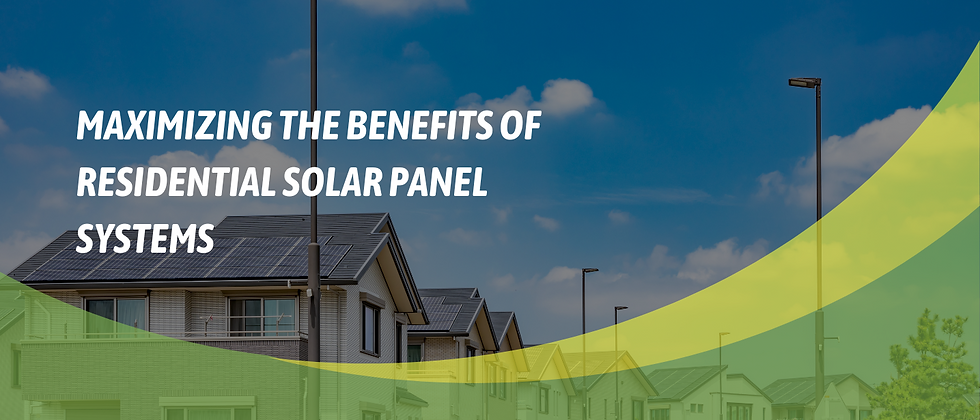A Guide to Understanding Solar Power Batteries
- info5347849
- Jun 19, 2024
- 3 min read
Solar power batteries, also known as solar energy storage systems, play a crucial role in modern solar power setups. They store energy generated by solar panels for later use, providing a reliable power source even when the sun isn't shining. This guide will walk you through the basics of solar power batteries, their types, benefits, and key considerations for choosing the right one for your needs.

What Are Solar Power Batteries?
Solar power batteries store the electricity generated by solar panels during the day, so they can be used when the panels are not producing electricity, such as at night or on cloudy days. This storage capability makes solar power systems more versatile and reliable, ensuring a continuous power supply.
Types of Solar Power Batteries
Several types of batteries are used in solar power systems, each with advantages and disadvantages. The most common types include:
1. Lead-Acid Batteries
Lead-acid batteries have been utilized for decades in a variety of applications. They are known for their reliability and relatively low cost. There are two main types:
Flooded Lead-Acid (FLA): Requires regular maintenance, including checking water levels and ensuring proper ventilation.
Sealed Lead-Acid (SLA): Maintenance-free and includes Gel and Absorbent Glass Mat (AGM) batteries.
2. Lithium-Ion Batteries
Lithium-ion batteries are popular due to their high energy density, longer lifespan, and low maintenance. They cost more than lead-acid batteries but provide superior performance and efficiency.
3. Nickel-Cadmium Batteries
Nickel-cadmium (Ni-Cd) batteries are durable and can operate in various temperatures. However, they are less efficient and have a higher environmental impact due to the toxicity of cadmium.
4. Flow Batteries
Flow batteries employ liquid electrolytes stored in external containers. They are scalable and have a long cycle life but are larger and more complex, making them less common for residential use.
Benefits of Solar Power Batteries
Investing in a solar power battery system offers several benefits:
1. Energy Independence
By storing excess solar energy, you reduce your reliance on the grid, providing greater energy security and independence.
2. Cost Savings
Using stored solar energy during peak hours when electricity rates are higher can significantly save your energy bills.
3. Backup Power
Solar batteries provide a reliable backup power source during outages, ensuring that critical appliances and systems remain operational.
4. Environmental Impact
Solar batteries contribute to a lower carbon footprint and a more sustainable future by maximizing renewable solar energy and reducing dependence on fossil fuels.
Key Considerations for Choosing a Solar Power Battery
When selecting a solar power battery, consider the following factors to ensure it meets your needs:
1. Capacity
The battery's capacity, measured in kilowatt-hours (kWh), shows how much energy it can store. Choose a battery with enough capacity to meet your energy consumption needs.
2. Power Output
Power output, measured in kilowatts (kW), determines how much energy the battery can simultaneously deliver. Ensure the battery can handle the peak power requirements of your home or business.
3. Efficiency
Battery efficiency, or round-trip efficiency, measures how much energy is lost during the charging and discharging. Higher efficiency means more stored energy is used effectively.
4. Lifespan
The lifespan of a battery is determined by the number of charge-discharge cycles it can handle. Consider the warranty and expected lifespan to understand the long-term value.
5. Cost
While initial cost is important, consider the total cost of ownership, including maintenance and replacement costs over the battery's lifespan.
6. Compatibility
Ensure the battery system is compatible with your existing or planned solar power setup, including inverters and other components.
Conclusion
Solar power batteries are a key component of modern solar energy systems, offering numerous benefits such as energy independence, cost savings, and environmental sustainability. By understanding the different types of batteries and considering key factors like capacity, efficiency, and cost, you can choose the right battery to enhance your solar power setup and ensure a reliable, sustainable energy supply for years to come.



Comments